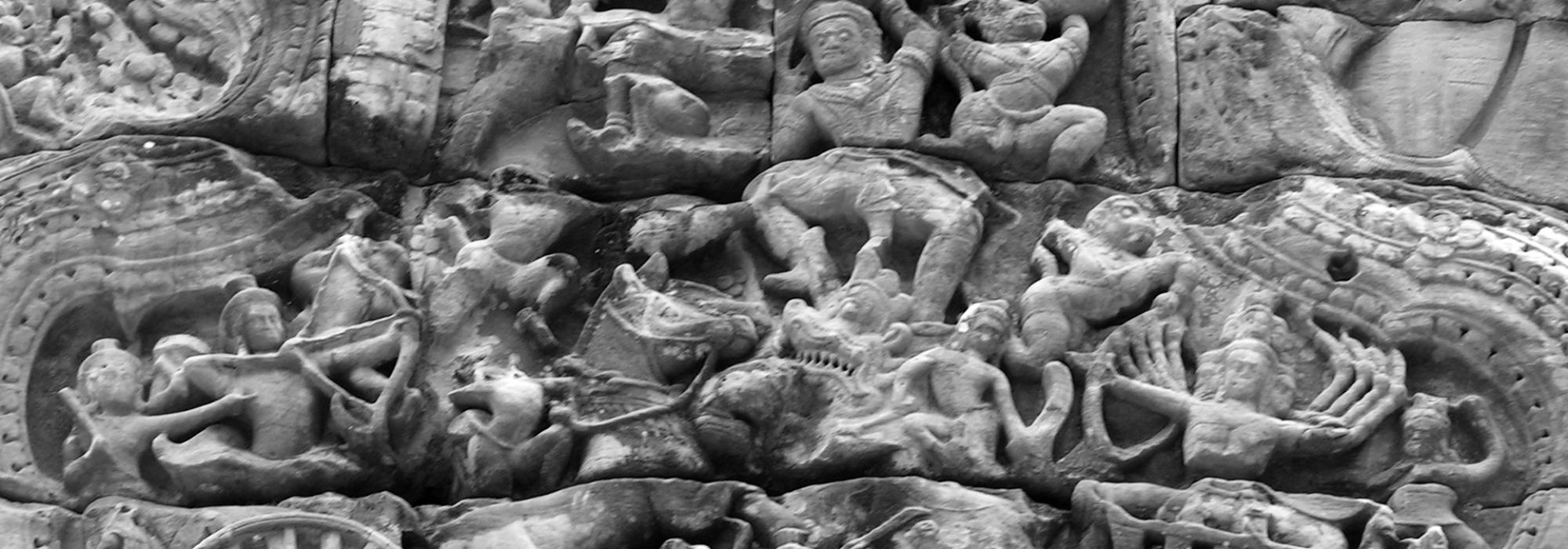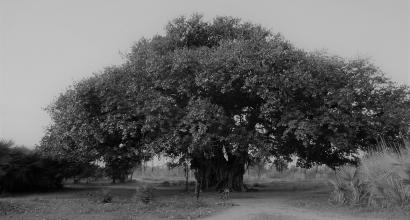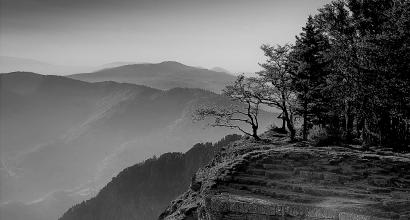In the राजनीति (politics) and युद्धनीति (warfare) sections of the Atharva Veda, there is a prayer –
“O deities! Ensure that we don’t have any enemies at all. Inspire us to greatness in kshaatra and in prosperity.”
From this we understand how courage was regarded and taught in Vedic times. While performing the पट्टाभिषेक for the king, the purohita says,
“अयं देवानामसुरोऽभिराजति” – “You have the blessings of Indra, the greatest of the devas and Varuna, the greatest of the asuras. With their blessings, I take the king close to the throne.”
In the earlier portions of the Vedas, asura does not mean राक्षस (demon); असून् रान्ति इति असुराः – those who fill us with health and wellness are asuras; in other words, they are the same as devas. As it is said in the Aitareya Brahmana [of the Rigveda], after the king ascends the throne, he is hit on the head using the ब्रह्मदण्ड, and is cautioned thrice, “You have become a dharmadandya now.” Before this takes place, the entire society gives permission to the king, saying “You should now govern us!” However, we should remember that the implicit understanding is that the king’s governance should adhere to dharma.
There is a hopeful prayer that goes –
“Let Agni facilitate the welfare of the nation. Through this king let him destroy those who are troubling the citizens. Let Indra, the greatest of kshatriyas and the lover of soma, punish those who trouble the subjects. Then let him bring them to the right path. Indra, the great ruler of the people and the killer of Vrtra, let him not be captured by enemies. May he stand in front of us and allay our fears. Let the brilliance and vigor of kshaatra protect us by relieving us from the violence, greed, deceit, anxiety, and criticism that arise from violent criminals, thieves, kidnappers, cheats, dishonest people, and other enemies of society.”
In the Atharva Veda, there is a special mantra section called the dundhubhi-sukta (AVS 5.90). It has verses in praise of the रणभेरि – the war drum.
“Oh war drum! As you proclaim aloud the clarion call, abduct the wealth and the steadfastness of the enemy.”
The prayer is, “May this drum roar aloud like a lion and inspire the king to wage the war, arousing his courage.” Apart from this several sections of the Atharva Veda Samhita exclusively speak about kshaatra and politics. Even in the prthvi-sukta (AVS 12.1) we find the ways in which our ancient seers have taught us values. The respect for the motherland, and through that the integrity towards kshaatra – both these we can see in the sixty-odd mantras in that sukta.
Further, the Atharva Veda underscores the importance of braahma-driven kshaatra when it says, “ब्रह्मचर्येण तपसा राजा राष्ट्रं वि रक्षति” (AVS 10.3.5) – the king has to protect his kingdom by adhering to brahmacarya and tapas. Thus we see the awareness of kshaatra in the four Vedas.
Translated from Kannada by Hari Ravikumar

















































